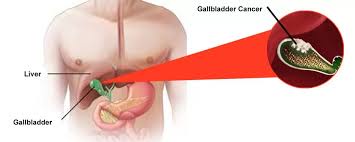Stomach cancer awareness, also known as gastric cancer, is a serious and potentially life-threatening disease that affects thousands of people every year. It is important to raise awareness about stomach cancer, its causes, symptoms, and prevention methods to help reduce the impact of this disease on individuals and families.
Understanding Stomach Cancer
Stomach cancer develops when abnormal cells in the stomach grow and divide uncontrollably, forming a tumor. The exact cause of stomach cancer is unknown, but certain factors can increase the risk of developing the disease, including:
- Helicobacter pylori infection: This common bacterium can cause inflammation in the stomach lining, increasing the risk of cancer.
- Smoking: Tobacco use has been linked to an increased risk of stomach cancer.
- Diet: A diet high in salty, smoked, or pickled foods may increase the risk of stomach cancer.
- Family history: Having a close relative with stomach cancer can increase your risk.
Symptoms and Diagnosis
The symptoms of stomach cancer can vary but may include:
- Indigestion: Persistent indigestion or heartburn.
- Abdominal pain: Discomfort or pain in the abdomen.
- Nausea and vomiting: Feeling sick or vomiting.
- Loss of appetite: Not feeling hungry or losing weight without trying.
- Difficulty swallowing: Feeling full quickly or difficulty swallowing.
If you experience any of these symptoms, it is important to see your doctor for a proper diagnosis. Diagnosis usually involves a physical exam, medical history, and tests such as an endoscopy or imaging tests.
Prevention and Support
While there is no guaranteed way to prevent stomach cancer, there are steps you can take to reduce your risk, including:
- Healthy diet: Eating a balanced diet rich in fruits and vegetables can help reduce your risk.
- Regular exercise: Staying active can help maintain a healthy weight and reduce the risk of cancer.
- Avoiding tobacco: Not smoking or quitting smoking can significantly reduce your risk of stomach cancer.
- Limiting alcohol: Excessive alcohol consumption has been linked to an increased risk of stomach cancer.
Support for stomach cancer patients and their families is crucial. Joining a support group or seeking counseling can provide emotional support and practical advice for coping with the challenges of stomach cancer.
Conclusion
Stomach cancer is a serious disease that requires attention and awareness. By understanding the risk factors, symptoms, and prevention methods, you can take steps to reduce your risk and support those affected by stomach cancer. Together, we can raise awareness and make a difference in the fight against stomach cancer.


No comments yet